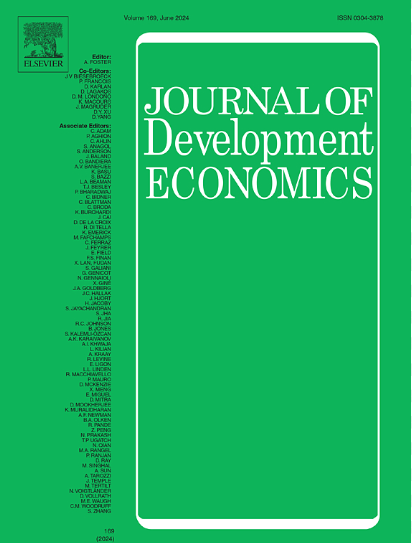利用计算机信息强制执行增值税:来自巴基斯坦的证据
IF 4.6
1区 经济学
Q1 ECONOMICS
引用次数: 0
摘要
我测试了增值税内置的第三方信息跟踪以及电子申报在低国家能力环境下阻止逃税的有效性。通过利用增值税追踪之外的信息并授权计算机化风险分析系统实时接受或拒绝税收抵免的改革,我的差异中差异估计显示索赔下降了50%。根据企业的异质性,回答范围在30%-90%之间。被处理的公司中大约有10%是假的,是为失踪交易员欺诈而创建的。国家一级增值税净征收增长的下限估计为10%。我发现,在发展中国家,传统的交叉匹配、审计和回收的增值税执行机制未能阻止逃税,但基于风险的实时执行系统是有效的。本文章由计算机程序翻译,如有差异,请以英文原文为准。
Using computerized information to enforce VAT: Evidence from Pakistan
I test the efficacy of VAT’s in-built third-party information trail, together with electronic filing, to deter tax evasion in a low state capacity environment. Using a reform which utilizes information beyond the VAT trail and authorizes a computerized risk analysis system to accept or reject tax credits in real time, my difference-in-differences estimates show that claims declined by 50%. Based on firm heterogeneity, the response ranges from 30%–90%. Approximately 10% of treated firms were fake, created for missing trader fraud. The lower bound estimate of increase in net VAT collection at the country level is 10%. I find that traditional VAT enforcement mechanisms of cross-matching, audit and recovery fail to deter evasion in developing countries but a risk-based real-time enforcement system is effective.
求助全文
通过发布文献求助,成功后即可免费获取论文全文。
去求助
来源期刊

Journal of Development Economics
ECONOMICS-
CiteScore
8.30
自引率
4.00%
发文量
126
审稿时长
72 days
期刊介绍:
The Journal of Development Economics publishes papers relating to all aspects of economic development - from immediate policy concerns to structural problems of underdevelopment. The emphasis is on quantitative or analytical work, which is relevant as well as intellectually stimulating.
 求助内容:
求助内容: 应助结果提醒方式:
应助结果提醒方式:


